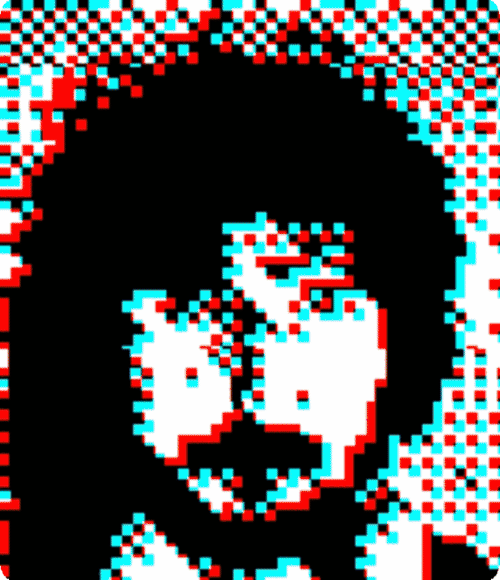Séimí Mac Síomón on Nostr: All roads lead to global warming. It's hot, that's global warming. It's cold, that's ...
All roads lead to global warming.
It's hot, that's global warming.
It's cold, that's global warming.
It's wet, that's global warming.
It's dry, that's global warming.
It hasn't changed at all, that's because of global warming.
It's like the worlds laziest attempt at game theory, the media does all of the heavy lifting.
Well, the media and the industrialisation of science and data.
Ted Kacynski (who I'm reading at the moment) has some really good insight about the pursuit of science in the modern age, but first you need to understand what he means by 'surrogate activity':
39. We use the term “surrogate activity” to designate an activity that is directed toward an artificial goal that people set up for themselves merely in order to have some goal to work toward, or let us say, merely for the qake of the “fulfillment” that they get from pursuing the goal. Here is a rule of thumb for the identification of surro¬ gate activities. Given a person who devotes much time and energy to the pursuit of goal X, ask yourself this: If he had to devote most of his time and energy to satisfying his biological needs, and if that effort required him to use his physical and mental faculties in a varied and interes¬ ting way, would he feel seriously deprived because he did not attain goal X? If the answer is no, then the person’s pursuit of goal X is a surrogate activity.
Now that that definition is out of the way, here is the afformentioned insight into science in the modern age:
87. Science and technology provide the most important examples of surrogate activities. Some scientists claim that they are motivated by “curiosity” or by a desire to “benefit humanity.” But it is easy to see that neither of these can be the principal motive of most scientists. As for “curiosity,” that notion is simply absurd. Most scientists work on highly specialized problems that are not the object of any normal curiosity. For example, is an astronomer, a mathematician or an entomologist curious about the properties of isopropyltrimethylmethane? Of course not. Only a chemist is curious about such a thing, and he is curious about it only because chemistry is his surrogate activity. Is the chemist curious about the appropriate classification of a new species of beetle? No. That question is of interest only to the entomologist, and he is interested in it only because entomology is his surrogate activity. If the chemist and the entomologist had to exert themselves seriously to obtain the physical necessities, and if that effort exercised their abilities in an interesting way but in some nonscientific pursuit, then they wouldn’t give a damn about isopropyltrimethylmethane or the classification of beetles. Suppose that lack of funds for postgraduate education had led the chemist to become an insurance broker instead of a chemist. In that case he would have been very interested
It's hot, that's global warming.
It's cold, that's global warming.
It's wet, that's global warming.
It's dry, that's global warming.
It hasn't changed at all, that's because of global warming.
It's like the worlds laziest attempt at game theory, the media does all of the heavy lifting.
Well, the media and the industrialisation of science and data.
Ted Kacynski (who I'm reading at the moment) has some really good insight about the pursuit of science in the modern age, but first you need to understand what he means by 'surrogate activity':
39. We use the term “surrogate activity” to designate an activity that is directed toward an artificial goal that people set up for themselves merely in order to have some goal to work toward, or let us say, merely for the qake of the “fulfillment” that they get from pursuing the goal. Here is a rule of thumb for the identification of surro¬ gate activities. Given a person who devotes much time and energy to the pursuit of goal X, ask yourself this: If he had to devote most of his time and energy to satisfying his biological needs, and if that effort required him to use his physical and mental faculties in a varied and interes¬ ting way, would he feel seriously deprived because he did not attain goal X? If the answer is no, then the person’s pursuit of goal X is a surrogate activity.
Now that that definition is out of the way, here is the afformentioned insight into science in the modern age:
87. Science and technology provide the most important examples of surrogate activities. Some scientists claim that they are motivated by “curiosity” or by a desire to “benefit humanity.” But it is easy to see that neither of these can be the principal motive of most scientists. As for “curiosity,” that notion is simply absurd. Most scientists work on highly specialized problems that are not the object of any normal curiosity. For example, is an astronomer, a mathematician or an entomologist curious about the properties of isopropyltrimethylmethane? Of course not. Only a chemist is curious about such a thing, and he is curious about it only because chemistry is his surrogate activity. Is the chemist curious about the appropriate classification of a new species of beetle? No. That question is of interest only to the entomologist, and he is interested in it only because entomology is his surrogate activity. If the chemist and the entomologist had to exert themselves seriously to obtain the physical necessities, and if that effort exercised their abilities in an interesting way but in some nonscientific pursuit, then they wouldn’t give a damn about isopropyltrimethylmethane or the classification of beetles. Suppose that lack of funds for postgraduate education had led the chemist to become an insurance broker instead of a chemist. In that case he would have been very interested
